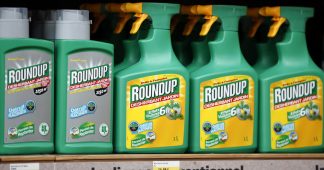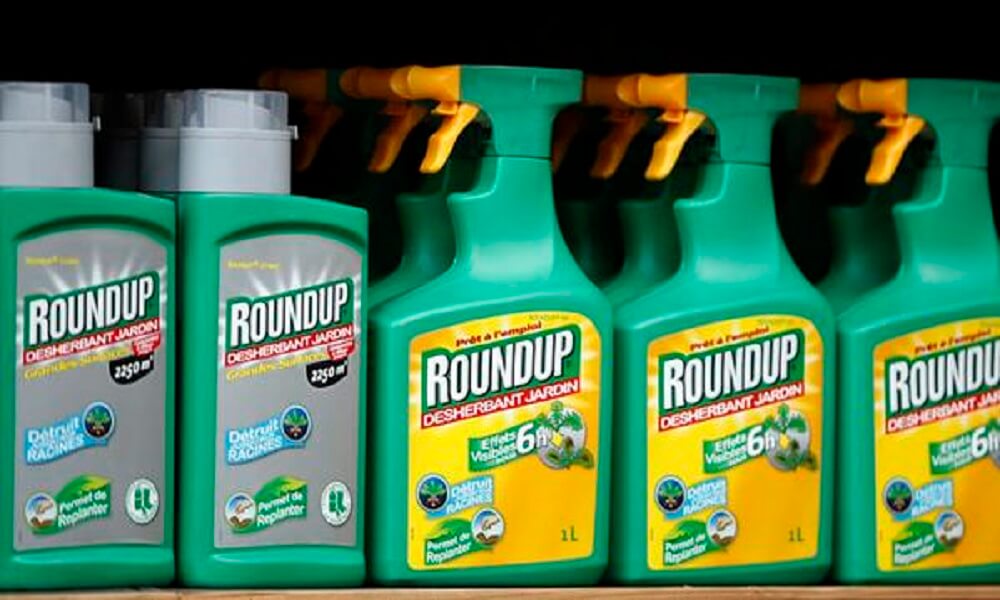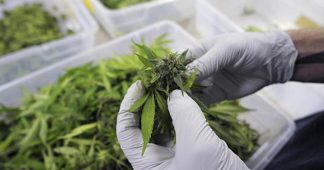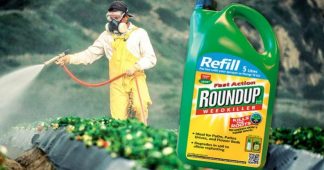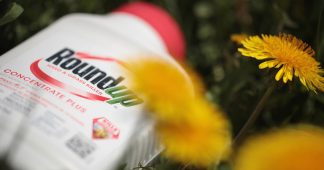Dec. 6, 2019
The power of the chemical industry in the United States all but wiped out the US EPA. The politicized department administers laws and regulations that prescribe what it can do. However, in practice, it’s the political appointees that decide what EPA does. Related to this political reality, and knowing the deep roots of industry influence in Congress and the White House, EPA does its work reluctantly most of the time.
In the case of hazardous chemicals, EPA is scared to even do the minimum of protecting the health of Americans, much less protect the integrity and health of the natural world.
Sky empty of birds
The result of such calculated political indifference is bad for all life. In the last fifty years, birds in North America declined by 29 percent. Our skies are becoming empty of tiny and modest-sized flying animals. There are some 3 billion birds missing.
Perpetual use of deadly neurotoxic pesticides in a gigantic one-crop agriculture cripples, starves and poisons birds all over the United States and Canada.
Skyscrapers and other lighted large buildings and millions of lighted homes are another deadly trap for birds. In the evenings countless millions of lights on these man-made hills and mountains change night into day, all but erasing the stars. This artificial and thoroughly unnecessary situation creates a threatening reality for birds that guide themselves from the position of stars in the sky. The lights disorient flying birds. They die crashing on the glass windows and walls of tall buildings and homes.
“Modern” humans do more than build skyscrapers. They keep destroying wetlands, marshes, watersheds, and forests, home to millions of birds.
Collapse of fish
The other effect of spraying neurotoxins over the natural world is the killing of much more than honeybees. Neurotoxic neonicotinoids target insects, vital food for fish. Parallel to the sharp decline of birds, neonicotinoids are responsible for the collapse of fish.
Chemical hegemony of Europe
The Europeans are by no means more sensitive to the precarious anthropogenic threat and domination of the natural world. Germany gave us chemical warfare during WWI. It has continued its production of neurotoxins, including neonicotinoids. Germany is owner of the world’s most popular carcinogenic weed killer, glyphosate /roundup, a product of Monsanto that used to be a controversial agrochemical, bioengineering, and pharmaceutical company of the United States. In 2018, the German giant chemical company Bayer paid $ 63 billion for Monsanto. Switzerland is home to very large chemical companies like Novartis, Syngenta and Roche.
European and North American agrichemical conglomerates dominate the Western political ruling class as well as agribusiness and the chemical industry. Their products circulate all over the planet, making it almost impossible for a living being to avoid contamination and potential poisoning.
The 1984 Bhopal tragedy
In December 2, 1984, Union Carbide’s pesticide factory in Bhopal, India, blew up. Its deleterious methyl isocyanate filled the sky over Bhopal, asphyxiating 25,000 people and injuring hundreds of thousands more.
Did the world, including India, learn anything from that man-made calamity? No! Pesticides are even more popular in 2019 than in 1984.
For example, one in seven species in the United Kingdom is on the verge of extinction. The most responsible factor for this evolving ecological catastrophe is industrialized farming and the nasty habit of spraying country roads for “weeds.”
Global pesticide danger
The UK, the European Union, and North America are not alone in this blind path to oblivion. The entire world has been converted to the gospel of agrotoxins: the worldwide addiction to pesticides is appalling.
In November 2019, a group of researchers from the tropics published a comprehensive report in which they documented the extensive use of pesticides and their deadly effects on people and the ecosystems of the natural world. Their message is, watch out.
There’s legal and illegal spraying and over spraying of brand new chemicals as well as decades-old toxic and persistent insect poisons like DDT: with “drastic effect on most raptor species like Gypaetus barbatus (bearded vulture)… and Aquila adalberli (imperial eagle)… Other important components of ecosystems which are negatively affected by pesticide overuse are biological pest control…, soil fertility… and proper crop pollination.”
In the Punta San Juan Marine Protected Area, in Peru, a researcher found lots of DDT and DDT-like poisons in the blood of the endangered Humboldt penguins (Spheniscus Humboldt).
In Uruguay, researchers found high levels of neurotoxic pesticides in 14,800 beehives. The result was “bee disorientation.” This effectively means honeybees cannot find their way back to their hives. They die from cold or starvation.
This global study reported that even the “regular” spraying of pesticides is bad for human beings. For example, eating food contaminated by pesticides is worse than drinking pesticide-contaminated water or breathing pesticides. In out bodies, pesticides act like hormones, causing chaos in the body’s endocrine mechanisms of healthy development.
Finally, the study warns: “Long-term low-dose [human] exposure [to pesticides] affects human health with reducing immunity, disturbs hormonal balance, reduces intelligence and causes reproduction-related problems and cancer.”
Lessons and remedies
Reading this timely and insightful report from the tropics, brought me back to my early days at EPA, only seven years after the EPA banned DDT in 1972.
This king of spray had its defenders. In fact, once a chemical passes the easy EPA “registration” (official approval) and ends up in the magic market, it’s extremely difficult to dislodge it. In addition to the corporate owner, a battery of industry scientists and scientists funded by the industry are ready to take oaths the chemical is innocent of all ecological and human health insults.
We have not learned this lesson either. Or, rather, like in the case of Bhopal, the chemical billionaires are bribing politicians and televisions and academics to keep painting a rosy picture of industrialized farming hooked on pesticides.
I am not a prophet. But putting to use my long-term experience with the EPA and learning from history enable me to reasonably predict the outcome of this pathology.
Alas for the younger people brought up in this irresponsible and amoral age. They will pay the highest price in health, ecological devastation, and personal dignity and survival.
My advice to people younger than forty is to overthrow their parents’ ecocidal economics for a just ecological civilization. The key in this desired metamorphosis is love for the natural world.
Published at https://www.counterpunch.org/2019/12/06/global-poison-spring/
